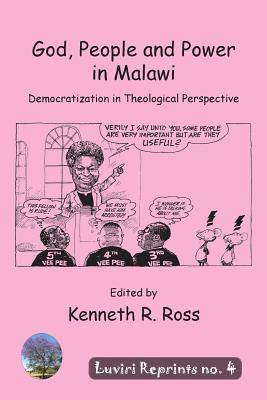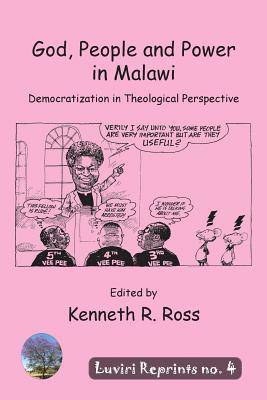
- Afhalen na 1 uur in een winkel met voorraad
- Gratis thuislevering in België vanaf € 30
- Ruim aanbod met 7 miljoen producten
- Afhalen na 1 uur in een winkel met voorraad
- Gratis thuislevering in België vanaf € 30
- Ruim aanbod met 7 miljoen producten
Omschrijving
Between 1992 and 1994 Malawi underwent a remarkable transition from dictatorship to democracy. Truly a transformation of power! Yet this period of profound change raised many issues of power and accountability. In this book some of the key questions are explained and addressed from a theological perspective. The work originated as a case study on the World Council of Churches "Theology of Life" programme. It was then presented as a Kachere Monograph in the belief that it will not only contribute to the reconstruction of politic in Malawi but also be an important resource for all those concerned with the formation of a viable theology of power for today's world. It is now presented here again as a Luviri Reprint. The contributors are all drawn from the University of Malawi Department of Theology and Religious Studies. Kenneth Ross has written on "The Transformation of Power in Malawi 1992-94: the Role of the Christian Churches" and "A Practical Theology of Power for the New Malawi"; Felix Chingota on "The Use of the Bible in Social Transformation"; Isabel Apawo Phiri on "Marching, Suspended and Stoned: Christian Women in Malawi 1995"; James Tengatenga on "Young People: Participation or Alienation? An Anglican Case"; J.C. Chankanza and Hilary Mijoga on "Muslim Perspectives on Power"; Hilary Mijoga on "Christian Experience in Malawi Prisons"; and Klaus Fiedler on "Power at the Receiving End: the Jehova's Witnesses' Experience in One-Party Malawi" and "Even in the Church the Exercise of Power is Accountable to God".
Specificaties
Betrokkenen
- Auteur(s):
- Uitgeverij:
Inhoud
- Aantal bladzijden:
- 276
- Taal:
- Engels
- Reeks:
- Reeksnummer:
- nr. 4
Eigenschappen
- Productcode (EAN):
- 9789996066047
- Verschijningsdatum:
- 28/06/2018
- Uitvoering:
- Paperback
- Formaat:
- Trade paperback (VS)
- Afmetingen:
- 152 mm x 229 mm
- Gewicht:
- 408 g

Alleen bij Standaard Boekhandel
Beoordelingen
We publiceren alleen reviews die voldoen aan de voorwaarden voor reviews. Bekijk onze voorwaarden voor reviews.











